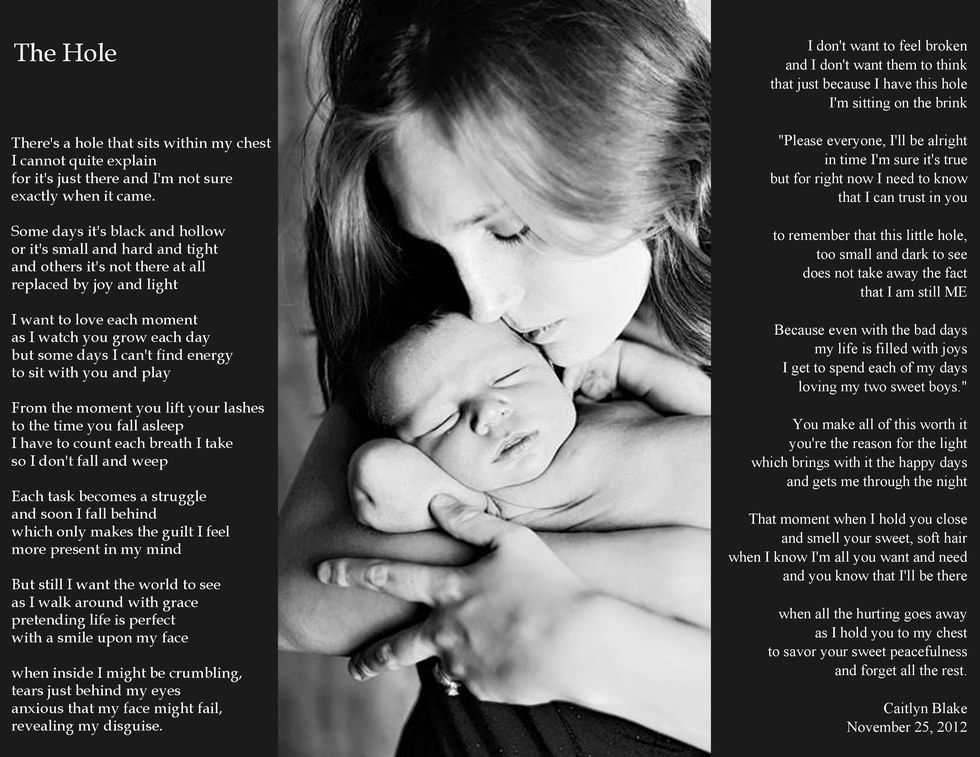Women’s Wellness is a useful class. It teaches women's health, from depression and physical health, to the female reproductive system. I learned a lot. Near the beginning of the semester, we had to pick a book, and later, present a project on a specific subject of a topic we were to discuss. My partner had dropped the class, but my professor was gracious enough to let me do it on my own. With Free reign, I decided on the topic of Depression, specifically Postpartum Depression (PPD). I picked it because I had seen reports of mothers having Postpartum, and in a specific case, it was mentioned that a woman’s husband did not believe in her feelings, so she ignored it until it eventually escalated into the murder of her children. That woman didn’t have a chance.
But, this is definitely not a regular case.
In my presentation, I wanted to focus on preventative measures, maybe so PPD wouldn't escalate to this degree. My goal is to make it personal for people, so they can understand that Postpartum is real and any woman is susceptible. I’ll give a little background on Postpartum Depression. It is a medical depression, that is usually misdiagnosed. It is different from the common “baby blues” and Postpartum Adjustment Disorder. Postpartum Adjustment Disorder is characterized by deep disappointment, but isn’t debilitating and usually caused by stressors like C-sections (Kleiman); the mother can still go through the motions of the day. Baby blues is even less severe, but can be confused with PPD. It causes feelings of inadequacy, crying, frustration and sadness.
Typical Postpartum symptoms include: crying, sadness, concentration, losing interest in hobbies, insomnia, no energy, change in diet, and hopelessness.
The feelings involved shouldn’t be discredited
Being an English major, there was one way, in the allotted time, I felt I could convey my message fully. I found a poem written by a woman who had experienced PPD; I cut and pasted a few stanzas and used it as a hand out.
“The Hole” by Caitlyn Blake is a representation of what women can feel due to PPD.
I ended up selecting a book on Postpartum called, “This Isn’t What I Expected: Overcoming Postpartum Depression (second edition),” written by Valerie Raskin, M.D and Karen Kleiman, M.S.W. It gave a lot of information as a guide for those that have been diagnosed. I used the book for most of my information. It is interactive, comforting, and even has a section for spouses. I will say that the terms wife and husband are used, but there is a disclaimer so not to deter same sex couples, which I think is pretty neat.The ultimate message is that women do not have to hide. Postpartum Depression is normal. There are support groups, books (like the one I used), and other professional help. If you are going through this, you aren’t crazy, and you don’t have to “be strong”. One out of five women go through postpartum depression (Kleiman). It can happen to anyone.
If you haven’t experienced PPD, then I hope this article has given you some insight and motivation to raise awareness and help others. If you have, I hope you know that there are options.
You aren't alone.






















